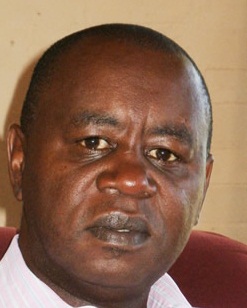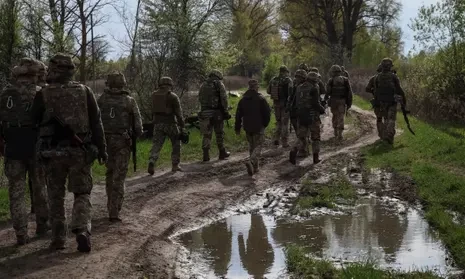
“A democracy exists whenever those who are free and are not well-off, being in the majority, are in sovereign control of government, an oligarchy when control lies with the rich and better-born, these being few.” (Aristotle) Zimbabwe’s history is well-documented, but questions still remain whether the actual history and events of the armed struggle and the struggles within the struggle, have ever been accurately chronicled.
Opinion Vince Musewe
The role of a few in the struggle has been somewhat embellished, while that of many significant others has been conveniently buried. It is clear that struggle history has not been treated as an objective and unemotional inquiry into what really happened, but rather, as a political tool to promote political self-interest of President Robert Mugabe and his cronies.
At some stage, we might indeed find out that those who might have become prominent after the struggle may not have necessarily played the role which they have accorded themselves. Until such a time comes, we shall have to live with their side of the story despite the doubts and the mysteries therefrom.
In his book, Struggles within the Struggle, Masipula Sithole, brother to nationalist and one of the key founders of Zanu, Ndabaningi Sithole, tried to articulate the struggles that took place in the bush. From him, we learn much about the underlying contradictions, the tribalism, the betrayals, the suffering and the killings that occurred.
Of note, was his warning that, because the contradictions and the struggles within the struggle were never resolved, we faced a risk, after independence, of rule by assassination, intimidation and the use of violence to resolve political problems, as opposed to rule by persuasion and consensus building. He was correct. Today we see the evidence of this culture through the suppression of our freedom of speech and the recent purges of war veterans is but a continuation of this struggle culture. Our country is led by people whose minds are still etched in the liberation struggle paradigm.
The history of Zanu, later to be called Zanu PF, is littered with dead heroes and emasculated opponents to Mugabe. To this day, 36 years after our independence, we are still witnessing power struggles within Zanu PF which seek to entrench Mugabe’s rule for life.
Assassinations, intrigue, violence, tribalism, smear campaigns through false accusations, and the use of the Central Intelligence Office (CIO) as tool to monitor and intimidate perceived rivals, have been the norm since 1980. This was how it was in the struggle, and these behaviours became the sole means to retaining political power after independence in 1980. We shall, at this juncture, not even talk about the conduct of elections from 1980 to date.
- Chamisa under fire over US$120K donation
- Mavhunga puts DeMbare into Chibuku quarterfinals
- Pension funds bet on Cabora Bassa oilfields
- Councils defy govt fire tender directive
Keep Reading
The famous claim by Kwame Nkrumah in 1951— “seek ye the political freedom first and everything else shall be added unto you” has turned out to be a big lie in most of Africa and in Zimbabwe in particular.
Zimbabwe, under the Mugabe regime, has regressed in all senses of the word. Today in 2016, Zimbabwe’s social indicators are comparable to those of Southern Rhodesia in 1958. In other words, the Mugabe regime has underdeveloped Zimbabwe back to 1958 standards of living. In addition, our country is now bankrupt with unprecedented unemployment levels and widespread poverty. It is the worst of times.
In the process, Mugabe has acquired a demi-god status, has become unchallenged and the sole leader for life of a Zanu PF organisation that never really transcended from a liberation struggle party to a democratic organisation with an apolitical agenda. The commitment and the responsibility to realise the core values and objectives of the liberation struggle to the benefit of all has become an inconvenience.
I am convinced though that Mugabe and his illustrious team of graduates, who made up the first cabinet of an independent Zimbabwe, never really comprehended what they were inheriting. Thirty-six years later, Zimbabwe has failed to unlock its vast potential and has become one of the poorest countries in Africa. From a bread basket to a pariah state has been our miserable journey.
I estimate that Mugabe has destroyed close to $100 billion (if not more) of value in his 36 years at the helm. This is almost eight times Zimbabwe’s current GDP of a mere $14 billion. It is a disaster, a nightmare which cannot continue.
Zimbabwe today is classified as a fragile State by the International Monetary Fund. A fragile State is defined as a country that cannot generate adequate income and is, therefore, unable to meet its day-to-day needs, it is dependent solely on primary exports whose prices can fluctuate significantly and often, has high debt levels, pervasive corruption, lack of transparency and non-accountability.
Fragile states such as Zimbabwe need political inclusion in order to move ahead. Political inclusion builds trust, reduces conflicting vested interests and converts them into national interest. Until we recognise that without national policies built through persuasion and consensus, we shall remain a fragile state unable to unlock its full potential.
Ibbo Mandaza, prominent Zimbabwean political scientist, in his paper titled; Zimbabwe’s journey: an overview and highlights of the last 200 year which looks at the political economy of Zimbabwe in the last 200 years, clearly articulated the failure of Zimbabwe- to move beyond political rhetoric while basically relying on colonial institutional architecture inherited from the past is the key reason for our lack of progress. He talks about “the failure to address the economic realm in favour of an obsession with the political kingdom.”
I totally agree with his observations. Zimbabwe is much more than Zanu PF imagines. We, therefore, need an urgent plan of action through which Zimbabweans, on the basis of a national leadership that cuts across all sectors and sections of the society, can begin to chart the way forward, taking advantage of the historical foundations of the nation, the enormous natural resources, a resourceful population that includes among the most skilled at home and in the diaspora, and a pivotal position, both geographically and geopolitically, in the sub-continent of Africa.
In order to deliver ourselves from this ‘evil’ and create the Zimbabwe we want, we desperately need the National Transitional Authority (NTA). This body needs to take over the reins as a matter of urgency and save us from the grave which Mugabe has dug for himself and his coterie of thieves.
It’s time for change!
Vince Musewe is an economist and author based in Harare. You may contact him on [email protected]











